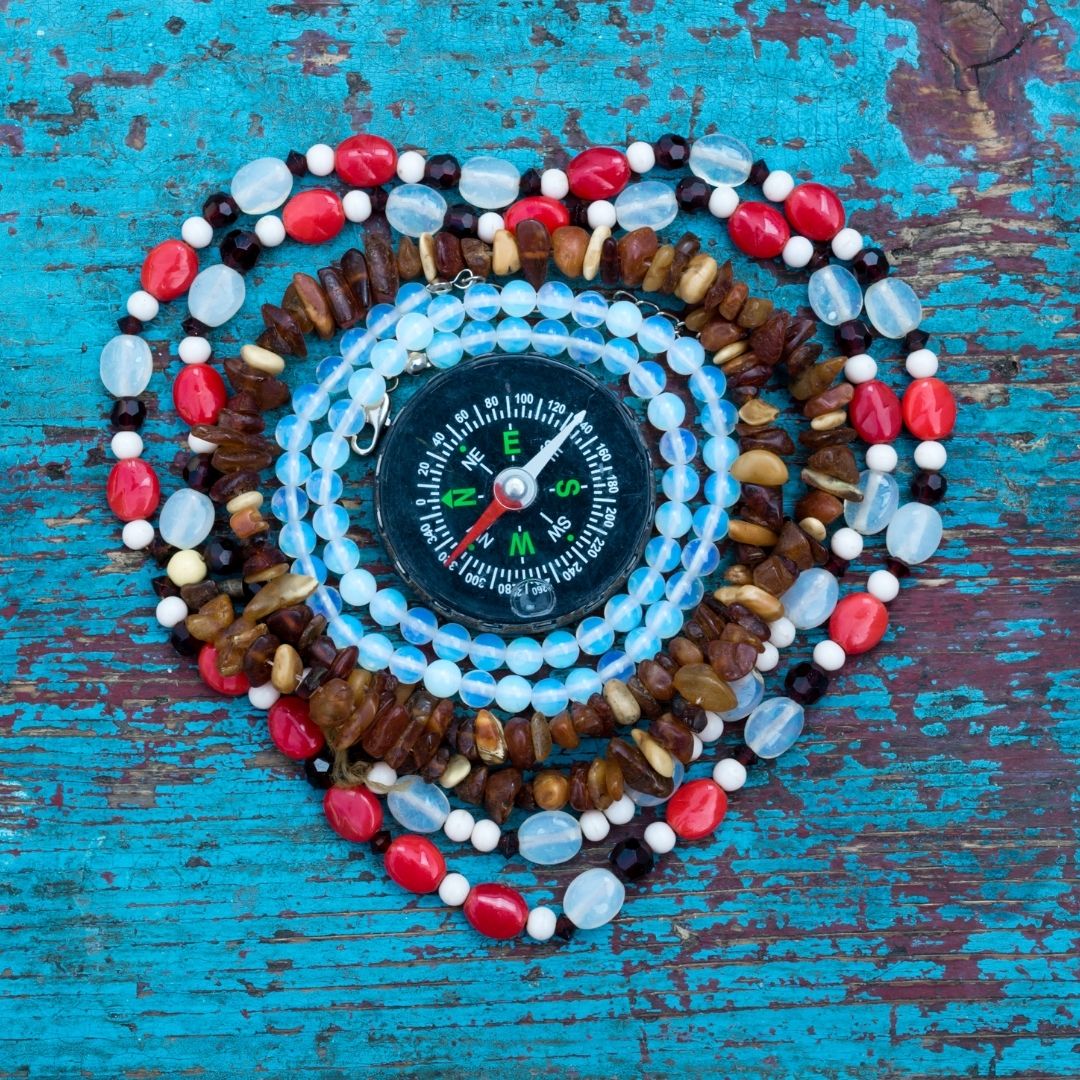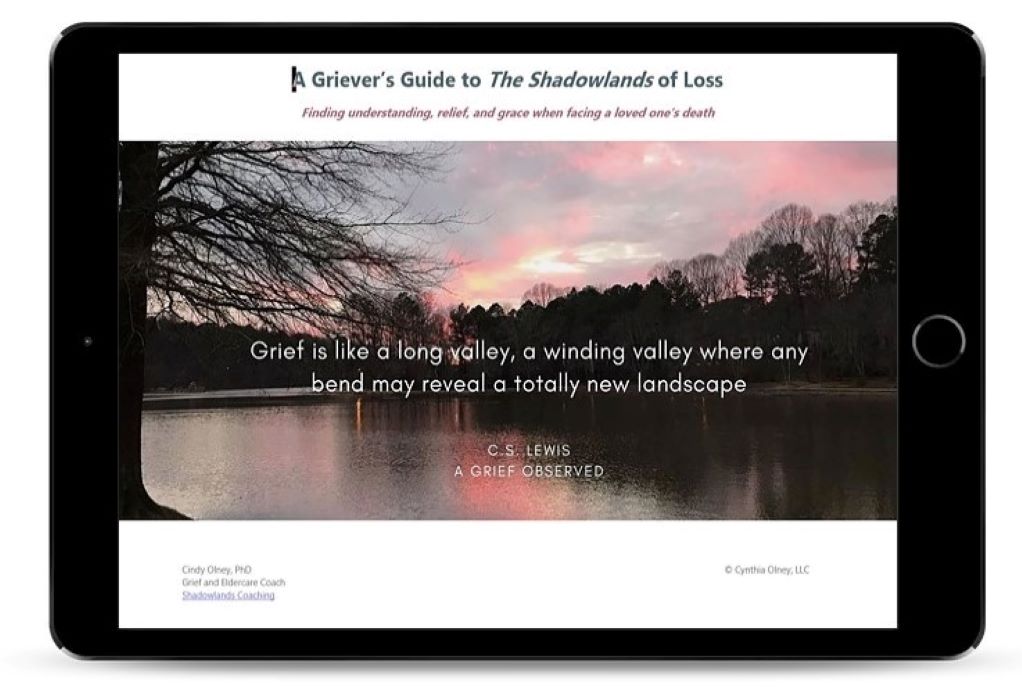I‘m on edge.
A loved one’s health is shaky. We’re waiting for a diagnosis and treatment options. For instructions on “what’s next.”
I hate waiting.
I want to do something. Good news or bad, I want the next steps to reveal themselves. Now.
Worse still, my loved one is 600 miles away from me, in the hands of people I don’t know. Whom I’ll never meet.
I hate that, too.
I recall a passage a friend recently shared on Facebook. It’s from an essay written by CS Lewis titled “Living in an Atomic Age.” He wrote it to a world grappling with an unnerving development: world leaders had acquired Doomsday weapons that could wipe out humanity.
World leaders they didn’t know. Whom they’d probably never meet.
He wrote:
"…The first action to be taken is to pull ourselves together. If we are all going to be destroyed by an atomic bomb, let that bomb when it comes find us doing sensible and human things—praying, working, teaching, reading, listening to music, bathing the children, playing tennis, chatting to our friends over a pint and a game of darts—not huddled together like frightened sheep and thinking about bombs. They may break our bodies (a microbe can do that) but they need not dominate our minds.”
It’s an essay that circulated through social media at the beginning of the COVID pandemic. It’s making its rounds again in the face of Putin’s cruel and unprovoked attack on Ukrainians.
But it’s not an essay for people coping with devastating events. It’s for people worrying about potential future events.
Because, the truth is, we suffer through many horrible events that never happen.
Which is what’s happening to me as I wait. I’m caught in a worry trap.
If Lewis was alive and with me, he’d sternly admonish me not to stay in the trap.
He’d tell me to pull myself together. And start doing sensible and human things.
And his advice rings true. But…
How exactly do you do that?
Pull It Together
When you’re caught in a worry trap, the first thing to do is recognize where you are.
This recognition is important. If you can’t see and acknowledge what’s happening to you mentally and emotionally, you’ll fall back on unconscious coping skills. You’ll spin like a tornado of energy, trying to outrun the feelings. Or you’ll freeze and self-soothe in unproductive, and possibly, destructive ways.
We suffer when we mount resistance in hopes to prevent a frightening future. Seeing your resistance means knowing how it acts and feels in your body. Maybe your mind sputters about all the possible dangers ahead. Maybe your emotions set alarm bells felt in your stomach, heart, shoulders, or jaw. Maybe it manifests as sleepless nights or low appetite.
The solution is to see the resistance, then allow what’s happening, allow what may happen, allow your reaction, allow it all. And surrender your attempt at controlling any of it.
I call this process “holding space for yourself.” You can read a full description of my personal practice in this blog post.
Do Sensible and Human Things
Once you feel the resistance start to loosen its grip, you can consider taking action.
Start by asking yourself some questions.
And remember, the questions are the strategy here.
Questions offer puzzles for the mind. which is at its best when it’s problem solving. They interrupt mental doom-scrolling through possible future horrors.
So, ask yourself:
Is there anything I can do right now about this situation? Once you’ve dampened the stress, you can tune into the still voice that may have good ideas. If you have an “a-ha” of what really might help, do it.
If you come up with a bunch of ideas, take them one-by-one. Start with the idea that will bring the most relief with the least amount of effort.
But if nothing comes to mind, honor that fact. And turn your attention to one of the following questions.
How can I inject a little bit of “normal” into today? In a previous job, I interviewed public librarians who’d served their communities during Hurricane Katrina. They told me they had ONE priority in the aftermath of the storm: to bring a sense of normalcy back to their ravaged towns. Sometimes, all they could do was open up the book return box in the parking lot. Yet, symbolically, this one service was huge. It signaled, “We’re still here. In spite of everything, life goes on.”
You can do this for yourself. Choose an everyday pleasure and vow to do it routinely, no matter what. Take a warm shower. Sweep your porch. Drink a cup of coffee. Do the daily Wordle. Take refuge in the simple things that remind you, “I’m still here and life goes on.”
How can I care for someone else today? Nothing takes us out of our heads better than showing kindness to someone else. Anywhere you can find a fellow human being, you can practice kindness. Complement a stranger. Send a note to a friend. Bring a potted basil to your neighbor. If you know someone well, show you care in their love language. Consider it another puzzle to occupy your nervous brain. (If you don’t know about love languages, here’s a post about it.)
How can I connect to someone in a comforting way? Humans are not meant to suffer alone. We resource off of each other. That’s just a fancy way of saying that someone else can calm you faster than you can calm yourself. You just have to pick the right person.
You also need to know how you like to connect. Do you like visiting with others in person? Do you enjoy company while watching television? Or taking a walk? Maybe texting is more soothing than talking.
It doesn’t matter. The key thing is to do something to remember “I’m not alone.”
It takes practice to learn these strategies. It takes even more to implement them when you’d rather hunker down and worry. But it’s a practice worth developing.
It teaches you to take your focus off things you can’t control and put it on things you can.
As I finish this post, things are looking up. The expert caregivers have now weighed in. They have laid out a plan, a set of steps forward that sound logical. And hopeful.
There's still uncertainty and I suspect more emotional ups and downs as the situation unfolds.
But I’m 99% committed to drinking two cups of coffee tomorrow morning. And completing the Wordle after lunch.
And doing sensible and human things until the future gets here.
*****April Classes****
Befriending Your Emotions:
(Yes, All of Them!)
Offered at three different dates/times
April 26, 2-3:30 pm ET
Wednesday, April 27, 7:00 - 8:30 pm ET
Saturday, April 30, 2:00 - 3:30 pm ET
Cost: $33
For information and enrollment, visit the class page.
Questions about coaching? Schedule a free discovery call. Click the button below to get started.
Rather connect through email? Send your questions to cindy@shadowlandscoaching.com.
Have you recently lost someone dear to you? Or are you worried about someone who has? Download your free copy of A Griever's Guide to The Shadowlands of Loss. It covers some key elements of grieving and a few helpful strategies that can ease your experience of grief.

